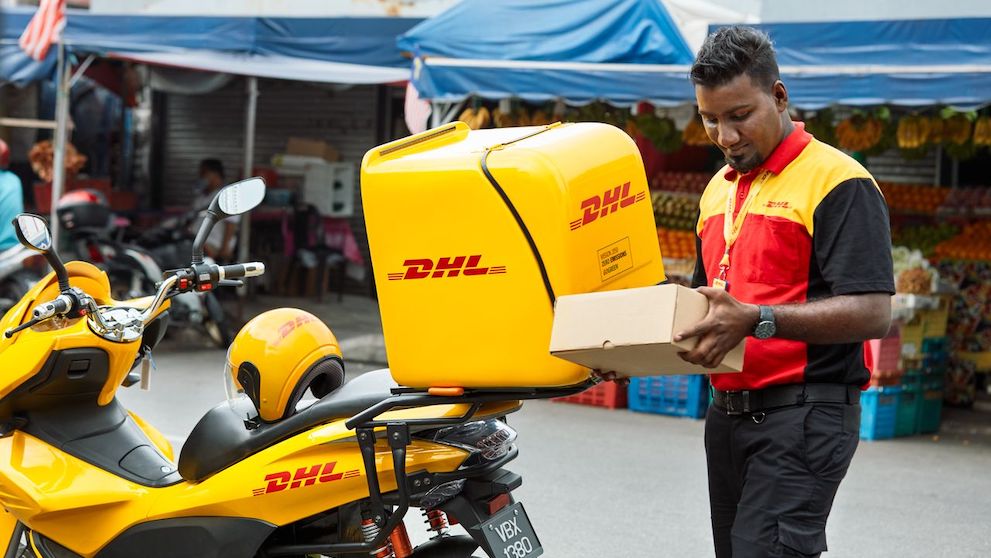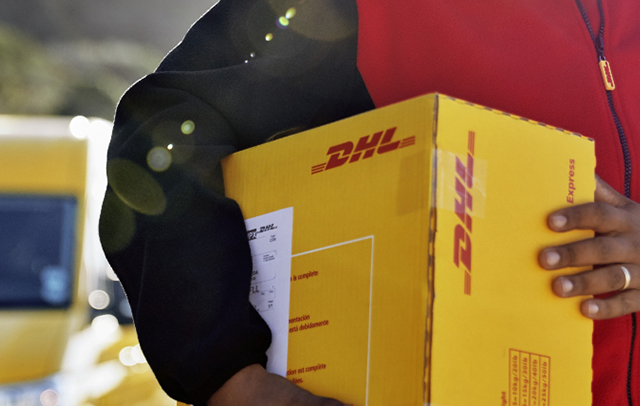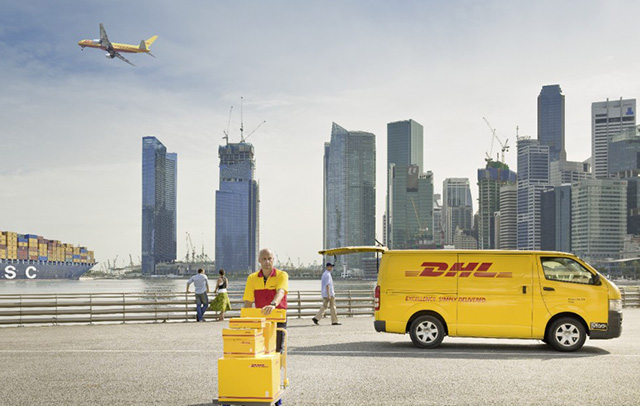Small & Medium Enterprises (SMEs) are the backbone of Singapore’s economy, making up 99% of businesses in the country, employing 71% of the workforce, and contributing 44% of GVA (Gross Value Added)1. However, their limited operating revenue, employee pool, and resources often cause unique logistical challenges that can hinder their growth and success.
Read on to explore some of these key challenges and find out how DHL Express Singapore’s solutions help streamline shipping logistics for small businesses.
Common logistical challenges faced by small businesses in Singapore
1. High shipping costs
Shipping, especially cross-border shipping, can be a significant expense for small businesses. Finding cost-effective shipping solutions is essential for maintaining a healthy bottom line, especially for businesses in Singapore with a strong international customer base. Factors contributing to high shipping costs typically include:
- Distance: Singapore's location means that goods often travel long distances to reach their destination, especially when shipping to the USA or shipping to Europe, increasing fuel costs and transportation time.
- Fuel prices: Unpredictable fuel price fluctuations can significantly impact shipping costs, making it challenging to budget and predict expenses.
- Dimensional weight: Many carriers calculate shipping costs based on dimensional weight, which considers both the size and weight of the package. This can be particularly challenging when shipping lightweight but bulky items.
- Surcharges: Various surcharges, such as those for fuel, peak seasons, and remote area deliveries, can add to the overall shipping cost.
Strategies for mitigating these challenges include:
- Negotiate with carriers: Negotiating for better rates can help reduce shipping costs. Opening a business account potentially increases your chances of enjoying more favorable shipping rates.
- Optimize packaging: Using appropriate packaging materials and minimizing package size can help reduce dimensional weight and shipping costs. Businesses should also ensure clear and accurate labeling, including both sender and recipient information, to avoid delays or misdirection.
- Consolidate shipments: Combining multiple orders into a single shipment can help reduce shipping costs per item, similar to our Breakbulk Express (BBX).
2. Complex customs procedures
Navigating customs clearance procedures and documentation can be a major headache for small businesses lacking dedicated expertise, leading to delays, unexpected costs, and frustration. While Singapore has efficient customs procedures, complexities can still arise, especially for businesses new to international trade and logistics. Common hurdles include:
- HS codes: Correctly classifying goods using Harmonised System (HS) codes is crucial for determining accurate customs duties and taxes.
- Documentation: Different countries have varying documentation requirements, and ensuring compliance can be time-consuming and confusing for small businesses.
- Compliance: Staying up-to-date with changing customs regulations and ensuring compliance can be challenging, especially when shipping to multiple countries.
- Potential delays: Incorrect documentation or non-compliance with regulations can lead to delays in customs clearance, impacting delivery times and customer satisfaction.
To address these challenges and avoid costly delays, small businesses can:
- Utilise online resources: Singapore Customs provides online resources and guides to help businesses understand outbound and inbound customs procedures and requirements.
- Seek professional assistance: As leaders in international logistics and shipping, DHL Express can provide expert guidance and ensure smooth customs clearance for our customers.
- Invest in technology: Utilizing customs compliance software can help automate processes and ensure accuracy in documentation.
3. Inventory management
Maintaining optimal inventory levels is a delicate balancing act for small businesses. Overstocking ties up capital, while understocking leads to lost sales and dissatisfied customers. Businesses also have to consider the following:
- Demand forecasting: Accurately predicting demand for products can be challenging, especially for businesses with seasonal or fluctuating sales patterns.
- Storage space: Limited and expensive storage space in Singapore can make it difficult to store large quantities of inventory.
- Inventory tracking: Manually tracking inventory can be time-consuming and prone to errors.
To improve inventory management, small businesses can:
- Implement inventory management software: This can help automate tracking, forecast demand, and optimise inventory levels.
- Adopt Just-in-Time (JIT) inventory: This approach involves ordering inventory only when needed, minimizing storage costs and reducing the risk of overstocking.
- Regularly analyse inventory data: Analyzing sales data and inventory turnover can help identify trends and optimise ordering patterns.
4. Order fulfillment and last-mile delivery
Efficiently picking, packing, and delivering orders, especially during peak seasons, can be a challenge for small businesses with limited resources. Businesses may face obstacles in achieving this, such as:
- Order processing, picking, and packing: Manually processing orders can be time-consuming and prone to errors. Discrepancies or inefficiencies in picking and packing processes can also affect the accuracy and timeliness of orders.
- Delivery speed expectations: With Singapore’s high population density and sprawling transportation network, customers frequently expect fast and reliable delivery. Meeting these expectations can be challenging for small businesses with limited delivery resources.
- Managing delivery costs: Last-mile delivery costs can be significant, especially when delivering to multiple locations.
As global leaders in last-mile delivery, DHL Express uses AI-powered route optimization software to plan efficient delivery routes and minimize both time and costs.
5. Returns Management
Handling returns and reverse logistics effectively can be complex. Singapore’s high e-commerce adoption rate only makes this even more crucial for small businesses, as customers have no shortage of competitors to turn to if they’re dissatisfied with the service received. Companies frequently have to consider the following factors in order to stay competitive:
- Return rates: High return rates can be costly, impacting profitability and adding to logistical complexities.
- Reverse logistics: Managing the return of goods from customers can be challenging, involving transportation, inspection, and restocking.
- Customer communication: Clear and timely communication with customers regarding their returns is essential for maintaining satisfaction and building trust.
- Restocking and processing: Efficiently processing returned goods, including inspection, restocking, and disposal, is crucial for minimizing losses and optimizing inventory.
Here's how small businesses can enhance their returns management:
- Implement a clear returns policy: Proactive communication is key to managing customer expectations. Keep customers informed about shipping updates, potential delays, and delivery timelines.
- Simplify the returns process: Make it easy for customers to initiate returns and provide clear instructions on how to return goods.
- Offer multiple return options: Provide customers with various return options, such as drop-off locations, pick-up services, and self-service returns portals.
- Automate returns processing: Use technology to automate returns processing, including tracking, inspection, and restocking.
How DHL Express can help small businesses with their logistics challenges

DHL Express is committed to empowering small businesses with the tools and expertise they need to navigate the complexities of international trade and logistics. Our tailored shipping solutions streamline the shipping process in various ways:
- International expertise: With extensive experience in international trade and logistics, DHL Express provides seamless cross-border shipping solutions. Our expertise in customs clearance services ensures smooth and efficient deliveries, minimizing delays and potential logistical issues.
- Competitive rates: We offer preferential rates for businesses, helping small businesses reduce their shipping costs and improve their bottom line. Our transparent pricing and flexible shipping options enable businesses to choose the most cost-effective solutions for their needs.
- Simplified customs clearance: Our customs brokerage services simplify the customs clearance process, ensuring compliance with regulations and minimizing the risk of delays or penalties. We handle the complexities of documentation and procedures, allowing businesses to focus on their core operations.
- Flexible solutions: We offer a range of shipping options tailored to different business needs, including express delivery, time-definite options, and specialised solutions like cold chain shipping solutions for temperature-sensitive goods.
- Shipment tracking and visibility: Our advanced tracking tools provide real-time shipment tracking and visibility, enhancing transparency for both businesses and their customers. This enables proactive communication and better management of expectations.
Efficient shipping and logistics are crucial for the success of small businesses in Singapore. By leveraging the right solutions, small businesses can optimize their operations, reduce costs, and enhance customer satisfaction.

Enjoy up to 70% off on international shipping with a business account. Explore our comprehensive range of small business shipping solutions and unlock your business's full potential.
- Department of Statistics Singapore, May 2024














































